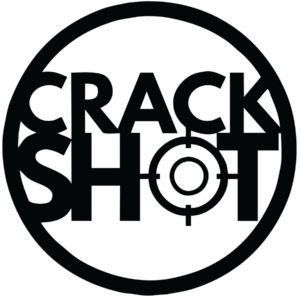Introduction
Side-lever air rifles represent a sophisticated evolution in airgun cocking mechanisms, offering shooters an ergonomic alternative to traditional bolt actions. This design, popularized in high-end match rifles, combines smooth operation with precise control. Born from competitive shooting demands, side-lever actions have become increasingly popular in both target and field applications, offering shooters the perfect blend of efficiency and precision. Their distinctive design allows for rapid cycling while maintaining shooting position, making them particularly valuable in competitive scenarios.
Technical Overview
- Action Type: Side-Lever Operation
- Operating Principle: Lateral cocking mechanism
- Typical Power Range: 12-50 ft/lbs
- Average Shot Count: 30-200 (PCP variants)
- Maintenance Frequency: Every 1000-2000 shots
- Skill Level Required: Intermediate
- Typical Price Range: $700-$4000
- Common Applications: Competition, hunting, target shooting
Mechanical Operation
Side-lever systems employ sophisticated mechanics:
Cocking Mechanism:
- Lateral movement design
- Mechanical advantage leverage
- Precision indexing system
- Smooth operation path
- Minimal effort required
Operating Cycle:
- Lever activation
- Magazine indexing/loading
- Hammer/striker cocking
- Return to battery
- Ready for discharge
Performance Characteristics
Side-lever designs offer distinct advantages:
Operational Benefits:
- Maintained sight picture
- Minimal position disruption
- Efficient cycling motion
- Reduced fatigue
- Ambidextrous options
Performance Factors:
- Match-grade accuracy
- Consistent operation
- Precise pellet loading
- Reliable cycling
- Smooth action
Design Evolution
Historical Development:
- Early Designs:
- Basic lever mechanisms
- Limited mechanical advantage
- Simple indexing systems
- Modern Innovations:
- Refined lever geometry
- Enhanced mechanical advantage
- Advanced indexing systems
- Improved materials
- Match-grade components
Maintenance Considerations
Regular Maintenance:
- Lever pivot lubrication
- Linkage inspection
- Magazine system care
- Seal verification
- Action cleaning
Long-term Care:
- Lever mechanism service
- Link pin inspection
- Spring replacement
- Seal renewal
- General overhaul
Shooter Technique
Essential Skills:
Operation Mastery:
- Lever manipulation
- Position maintenance
- Loading technique
- Follow-through
- Rhythm development
Advanced Techniques:
- Competition cycling
- Position integration
- Magazine management
- Speed optimization
- Precision control
Common Variants
Design Types:
- Competition models
- Field versions
- Hunting configurations
- Target specific
- Training variants
Power Systems:
- PCP based
- Spring piston
- Gas ram
- Hybrid systems
- Match specific
Technical Considerations
Engineering Aspects
- Mechanical efficiency: 75-90%
- Power transfer systems: Direct or linked
- Lever geometry: Optimized arc
- Indexing systems: Precision controlled
- Operating force: Mechanically advantaged
- Sound characteristics: Action dependent
Performance Factors
- Energy transfer: System dependent
- Operating characteristics: Smooth and consistent
- Efficiency ratings: Very high
- Temperature sensitivity: Minimal
- Altitude effects: Power system dependent
- Humidity impact: Low
Practical Applications
Competition Use
- Match suitability: Excellent
- Accuracy potential: Match grade
- Cycling efficiency: Superior
- Setup requirements: Comprehensive
- Competition advantages: Position retention
Field Applications
- Hunting suitability: Very good
- Follow-up shot capability: Excellent
- Portability: Good
- Power consistency: Excellent
- Field durability: Very good
Training Benefits
- Learning curve: Moderate
- Skill development: Progressive
- Technique requirements: Specific
- Common mistakes: Minimal
- Training value: High
Future Developments
Emerging Technologies:
- Electronic assistance
- Refined mechanisms
- Advanced materials
- Enhanced ergonomics
- Digital integration
Innovation Areas:
- Lever designs
- Indexing systems
- Weight reduction
- Noise reduction
- Operational efficiency
Special Considerations
Ergonomic Factors:
- Lever placement
- Operating arc
- Force requirements
- Position stability
- User adaptability
Performance Optimization:
- Lever adjustment
- Magazine function
- Cycling smoothness
- Position integration
- Speed development
Accessories and Equipment
Essential Gear:
- Spare magazines
- Maintenance tools
- Cleaning equipment
- Adjustment tools
- Lubricants
Performance Enhancements:
- Custom levers
- Enhanced magazines
- Match triggers
- Precision barrels
- Ergonomic upgrades
Advanced Topics
Mechanism Design:
- Lever geometry
- Mechanical advantage
- Indexing precision
- Operating forces
- System integration
Competition Setup:
- Position optimization
- Lever adjustment
- Magazine selection
- Trigger setting
- Speed development
Safety Guidelines
Critical Practices:
- Lever operation
- Magazine handling
- Position control
- System monitoring
- Transport considerations
Regular Checks:
- Lever mechanism
- Indexing system
- Magazine function
- Safety systems
- Operating smoothness
Usage Tips
Best Practices:
- Smooth operation
- Regular maintenance
- Proper lubrication
- Position development
- Technique refinement
Storage Considerations:
- Lever position
- Magazine storage
- System protection
- Transport requirements
- Environmental factors
